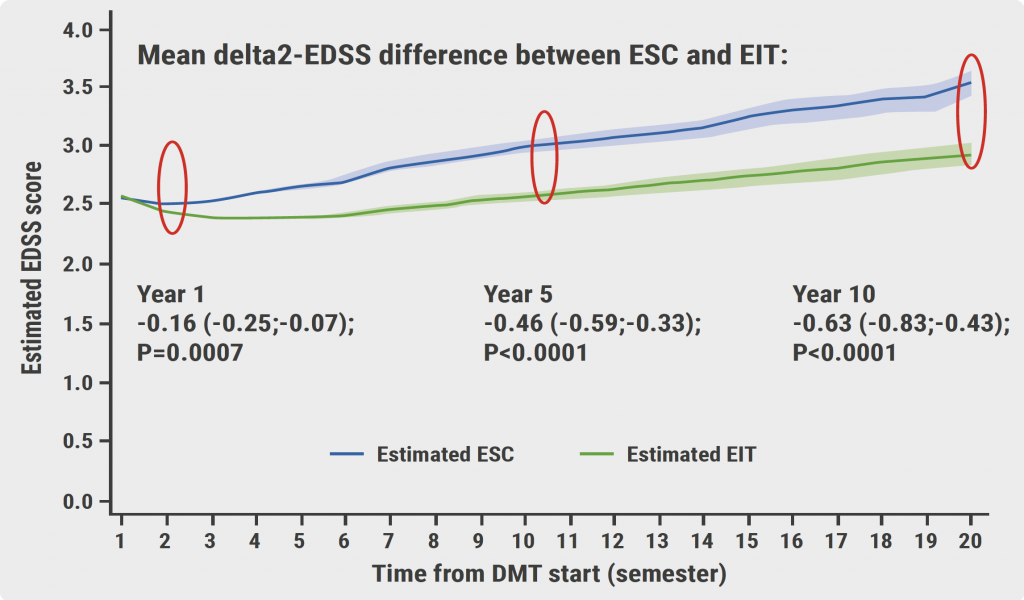The impact of CV risk factors on T2 hyperintense lesion volume and brain atrophy in MS patients aged ≤50 years was evaluated in 124 MS patients (relapsing-remitting MS, n=79; progressive MS, n=45) and 95 matched healthy controls. Participants underwent a complete neurological assessment and brain 3D T2-weighted and FLAIR MRI, as well as 3D T1-weighted MRI. Assessed traditional CV risk factors were smoking ≥5 pack-years, hypertension, dyslipidaemia, and (pre-)diabetes. More stringent cut-offs were also assessed: smoking ≥10 pack-years, and hypertension, dyslipidaemia, or diabetes while on medication. Of the 124 MS patients, 48 had 1 traditional CV risk factor, 15 had 2 or more. Of 95 healthy controls, 19 had 1 risk factor, 4 had more (P<0.001). Thirty MS patients had 1 stringent risk-factor, and 8 had more than 1, as did 10 and 3 healthy controls (P=0.01). The most common CV risk factor was smoking.
In MS patients, having 2 or more traditional CV risk factors was associated with reduced normalised grey matter volume (nGMV; P=0.01), white matter volume (nWMV; P=0.03), and whole brain volume (nBV; P=0.003), but not with T2-lesion volume (T2-LV; P=0.27). Only hypertension was associated with MRI measures (nWMV and nBV). Having 1 stringent CV risk factor was associated with reduced nGMV (P=0.006), nWMV (P=0.003), and nBV (P<0.001), and higher T2-LV (P=0.03). In healthy controls, neither traditional nor stringent risk factors significantly impacted the abovementioned measures.
- Bonacchi R, et al. Cardiovascular risk factors affect brain volume in young MS patients. MSVirtual 2020, Abstract PS04.05.
Posted on
Previous Article
« Amantadine, modafinil, and methylphenidate for MS-related fatigue Next Article
Disease activity during pregnancy in a modern MS cohort »
« Amantadine, modafinil, and methylphenidate for MS-related fatigue Next Article
Disease activity during pregnancy in a modern MS cohort »
Table of Contents: MS Virtual 2020
Featured articles
COVID-19 and MS
Biomarkers
Treatment Strategies and Results
Management of progressive MS with approved DMT
Novel Treatment Directions
Neuromyelitis Optica Spectrum Disorders
Miscellaneous Topics
Related Articles
August 18, 2021
Alemtuzumab in treatment-naïve patients with aggressive MS

December 4, 2023
Early intensive treatment enhances long-term clinical outcomes
September 27, 2021
More evidence that some MS drugs may diminish SARS-CoV-2 vaccine response
© 2024 Medicom Medical Publishers. All rights reserved. Terms and Conditions | Privacy Policy
HEAD OFFICE
Laarderhoogtweg 25
1101 EB Amsterdam
The Netherlands
T: +31 85 4012 560
E: publishers@medicom-publishers.com

